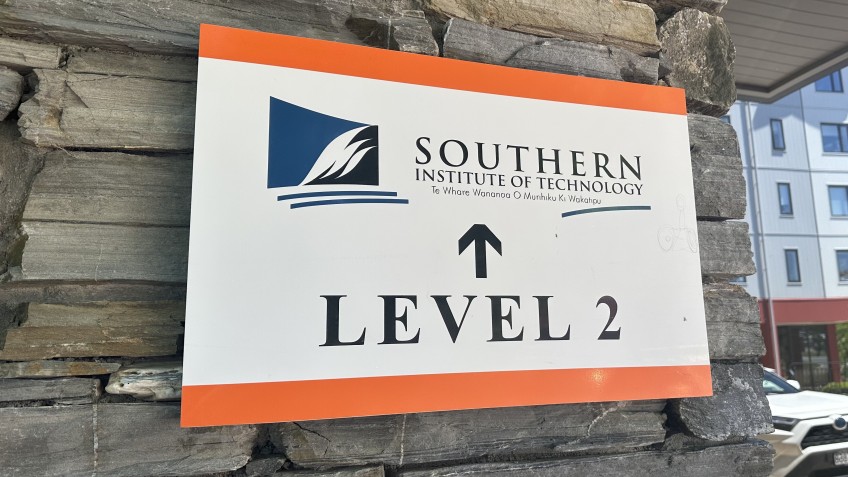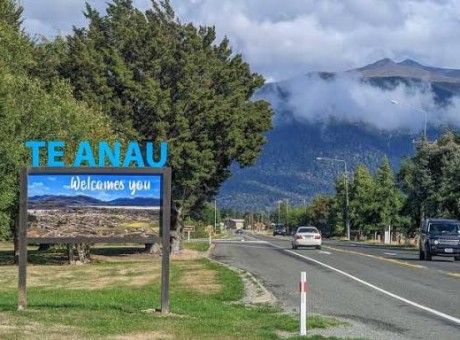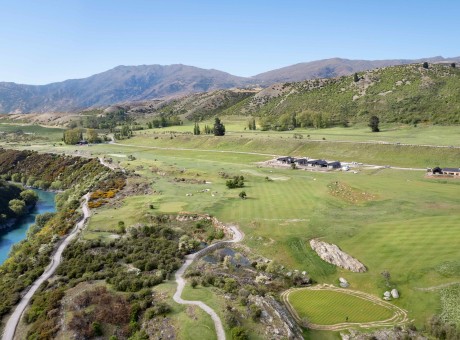Queenstown te reo Māori classes at risk of cancellation

Financial constraints have put Queenstown's popular te reo Māori language courses on the chopping block, but pleas from students have helped save the classes from cancellation, for now.
However, their future still relies on securing more teachers.
Te Wānaga o Aotearoa Invercargil-based kaiwhaka haere ako (manager) Anahera Mills says they are currently advertising for Queenstown-based te reo Māori teachers to keep the classes going.
Classes have been predominately taught by Invercargil-based teachers travelling up to Queenstown and staying in motels, which is not sustainable.
Ms Mills says a little over two-and-a-half weeks ago it was indicated the Queenstown classes may be discontinued because of the escalating travel and accommodation costs to send teachers back and forth from Invercargill.
This year, 120 students have enrolled in the free classes taught at the Southern Institute of Technology's Queenstown campus, which comes under the umbrella of mega-polytechnic Te Pūkenga. However, the classes are run by national organisation Te Wānaga o Aotearoa, with the two organisations working in partnership.
"What both organisations would like to see is it the classes remain in Tāhuna and we would like to employ local people from Tahuna to look after their community," Ms Mills says.
When news of the potential end to classes was passed on to some of Queenstown's advanced learners and teachers, it was met with dismay.
Ms Mills says people rallied and wrote personal accounts of what learning te reo means to them to pass onto to decision-makers.
"I really wanted the managers to be able to read what the students had to say about the impact that te reo Māori has had on them, and how this community would be affected...they gave me some outrageously amazing stories from past students and current students."
Queenstown-based Corey Ratahi is one local teacher at the institute, but next year he had plans to pursue his own studies and will be unavailable to lead classes.
Mr Rathi says the status of Queenstown's classes still appears to be in a "grey area" at the moment; two weeks ago teachers were told classes would be cancelled, and now there are "ongoing discussions".
He says two of his friends have put their hands up to be teachers in Queenstown next year, but nothing has been confirmed at this stage.
He acknowledges the status quo where most teachers travelling from out of town has "turned into a really costly exercise".
"We were quite devastated when we found out they were considering closing the classes here. I understand that it was a financial decision because we don't have enough people who can facilitate the teaching of those classes who live in Queenstown.
"We're fingers crossed and hopeful that we can continue to facilitate the language classes here next year."
Mr Ratahi says there has been good interest in Queenstown for the classes, and they attract a wide range of participants.
Age-wise there are participants from 18 to 80, with a wide range of ethnic diversity - about one third Māori, one third New Zealand European and one third migrants, he reckons.
He says he often hears from members of the migrant community that they are drawn to the classes as a way of learning more about their new home.
"When they land in New Zealand, they feel like there's a responsibility on their shoulders, to learn about the local culture and the local language."
He says while he is proud to be part of a movement that has seen are "significantly more" people speaking the language, its use hasn't grown as fast, or among as many people, as he'd like.
"In the time that I've been teaching, I feel like I've been part of that wave. I've been helping to grow the numbers in the region."
One of those people is level two language student Gea Hallen, who moved here from Estonia in November last year, and began learning te reo at the start 2023.
"I am interested in languages and here in New Zealand there are two official languages. So it seemed like the logical thing to learn the other one I didn't know."
She says through learning the language, she's also learned "a lot about the culture".
"It's not just a regular language course where you learn just words and grammar...we're talking generally about the culture, we go and visit the marae."
Ms Hallen says she's had two marae visits through the course, and it feels like she has "stepped through the culture".
"At the marae everything sort of comes together; the language, and the history, the visual arts, and the carvings and everything you can see around the marae, and the traditions that are upheld at the marae."

























